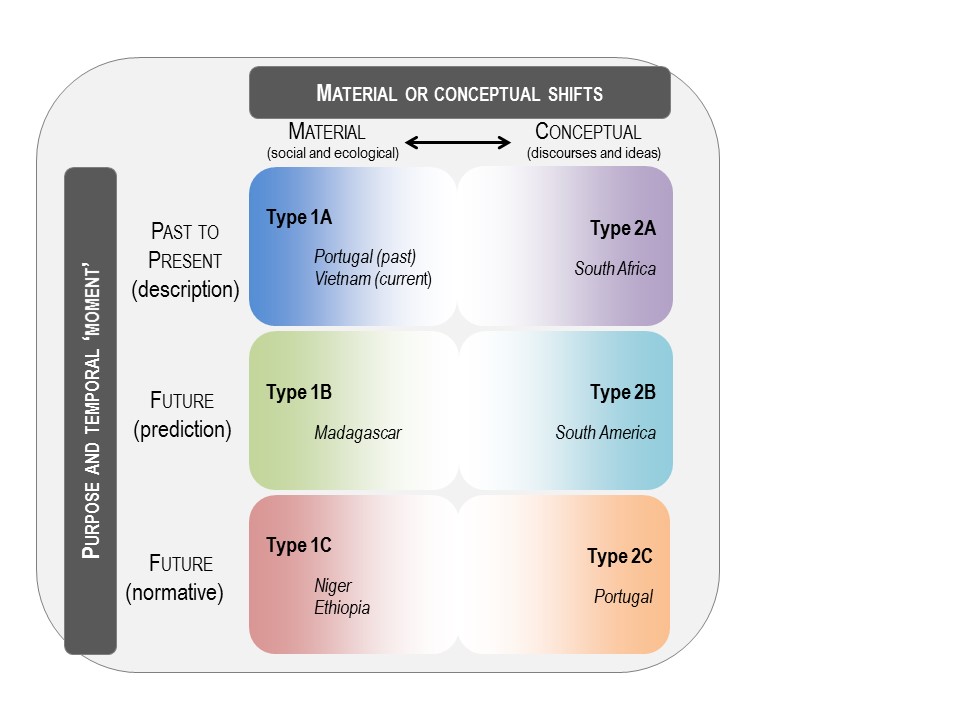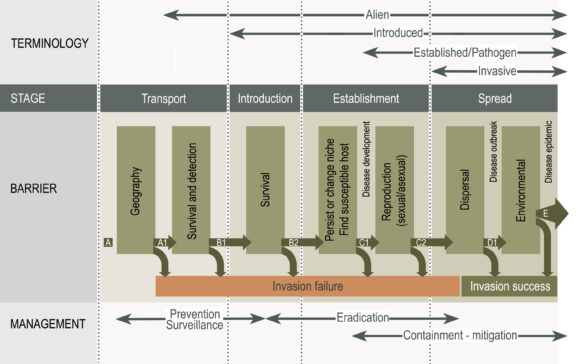17 November 2017 | By Dave Richardson
What happens when you take a concept developed to describe elements of ecology and apply it to complex social-ecological phenomena involving politics, economics, culture, and more? What challenges occur when concepts are borrowed from systems ecology or complexity science and applied to situations with people, power, perceptions, contingencies, and feelings? Have such deliberations any value for invasion science? A new paper addresses exactly these questions.
The paper emerged from a collaborative project involving researchers from diverse disciplines (including several from the C·I·B) that came together to investigate the management challenges that exist in areas where Australian Acacia species (“wattles”) dominate landscapes. It grew from wide-ranging deliberations as team members tried to agree on a common epistemological and conceptual foundation on which to base discussions relating to social and ecological changes occurring in acacia-dominated landscapes in South Africa, Portugal, Vietnam, and elsewhere.
Published in the journal Geographical Research, the paper does four things:
- It traces the rise of the ‘regime shift’ concept in the study of social-ecological systems and its roots in dynamical systems theory.
- It surveys social science critiques of applying systems-based approaches and concepts (like ‘regime shift’) to topics involving people, ideas, motivations, perceptions, and regional contexts, and proposes an alternative, critical realist epistemology as a basis for using ‘regime shift’ as a contingent, multi-perspective metaphor or boundary object. The authors argue that “instead of understanding a regime shift as a type of systems behaviour that can be described and analysed through systems models… regime shift [should] be defined specifically enough to facilitate dialogue and research about a bounded range of phenomena, but flexible enough to allow for people with different worldviews and epistemologies to contribute to the debate.”
- It proposes a generic definition of regime shift that is consistent with this alternative epistemology: a regime shift is a major, sudden, and persistent change in the tightly interrelated processes, functions, and processes that are perceived to characterise and/or maintain particular society-environment phenomena of interest. The paper also reflects on what exactly ‘major’, ‘sudden’, and ‘persistent’ mean, and which ‘processes, functions, and processes’ are important. [For details on invasive plants as drivers of regimes shifts]
- Finally, the paper proposes a typology that shows six ways in which analysts use the regime shift concept. It is used to analyse past changes, predict future trends, and describe desired pathways for change, and is also applied to both material and conceptual worlds. The paper gives examples of each usage from the global literature on landscapes shaped by a strong presence of Australian acacias, but it fits just as nicely to many other phenomena (such as bushfires).
The figure below summarizes the typology of different ways in which the regime shift concept is used (the country names indicate examples discussed in the text relating to acacia-dominated landscapes).
The authors argue that the ‘regime shift’ concept can be a fruitful communicative and analytical tool when applied in a variety of different ways to promote dialogue, discussion, prediction, and more detailed analyses.
The lead author on the paper was Professor Christian Kull from the University of Lausanne in Switzerland. Co-authors included C·I·B Director Dave Richardson, C·I·B Associate Christoph Kueffer and former C·I·B Research Fellow Joana Vicente.
The paper builds on substantial previous work involving C·I·B-affiliated researchers dealing with the global natural experiment in biogeography created by human-mediated introductions of Australian acacias, the human dimensions of these introductions, and the many perspectives relating to impacts, including the notions of regime shifts and the framing of invasions as a wicked problem.
For more information, contact Dave Richardson at rich@sun.ac.za


